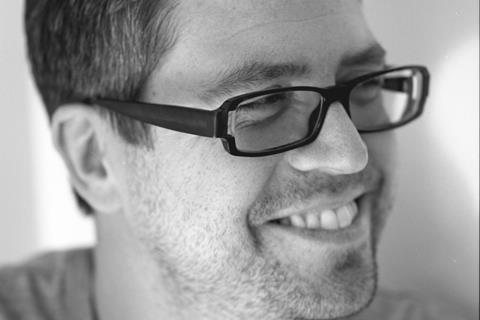
LA-based British composer John Powell is best known for his dynamic action scores, including the Bourne series, Mr & Mrs Smith and Face/Off) as well his work in animation, creating the music for countless children’s classics including Happy Feet 1 & 2, Kung Fu Panda, and the three How To Train Your Dragon films. When it came time to provide the score for the live-action version of Dragons, director Dean DeBlois, who also wrote and directed the animated movies, once again turned to Powell. The result has seen Powell, who also worked on the scores for Wicked and the upcoming Wicked: For Good, nominated for film composer of the year at the World Soundtrack Awards.
You’ve composed the music for numerous sequels but never scored a live-action remake of an animated movie. What was your immediate reaction to be asked to return to the world of How To Train Your Dragon?
I never thought they’d do it. Then Dean [DeBlois] called and said it had been suggested that he direct and my heart went quickly from sinking to very excited. It was a rollercoaster of emotions but because they wanted Dean, I thought, “Okay, this is good, this is going to be fine.” Then I relaxed and I thought, “This is either going to be the easiest gig I’ve ever done, or the hardest.”
Which was it in the end?
It was almost the hardest gig, because the weird thing is you do every film as best you can, and hope that every one’s going to land. But that score always kept coming back at me as being, “You [already] did a good one [for the animated version].” That became the issue – I thought, “I can’t fuck this up.” I probably wouldn’t have done it as well if I hadn’t been older and more experienced. But it was very interesting to do and provided the exact exploration of what the difference between live action and animation is, which is a question everybody’s always asked me. I’ve always been a bit blithe about it because it always seemed obvious that there was no difference. But there’s a big difference. It’s thousands of tiny things, tiny tonal shifts, tempo shifts, orchestration shifts. It’s a slightly different prism you’re looking through all the time. So it was very hard in the end, even though I wasn’t really writing anything new, but I was having to reinterpret everything and make it sound as if it was all the same.
Was there ever a conversation about doing a completely new score?
That was certainly a thought. Again, not being quite aware of what was going to be the reference between animated and live action, I thought, “It’s going to have a completely different tone and I’m going to have to do everything very differently.” I knew it was going to be the same story, but a little stretched. I thought I was going to have to find a different set of tools to make a lot of the tone shifts, but we would use all the [previous] thematic material. But once they started to temp it and put music in that wasn’t Dragons in a few places, everybody had issues. They weren’t sure whether it was editorial, whether it was the footage. Then they started to put some of the [old] music back in, and everybody relaxed. And so, they put about half of the score back. In the end, I got a lot more out of the old score than I ever thought.
How much new music did you write?
Some of it is exactly as it was. Some of it is remixed in the sense of re-orchestration. Some of it is tunes that have been revamped in different ways and I found different ways of doing things. Obviously since the first Dragons movie, I also did two sequels and had to develop the tunes from number one for those as well. So there’s material from the two other movies, although thematically it’s only the stuff from the first movie.
But new versions, new approaches, and then some new interstitial bits that get you from A to B. It was a lot of crafting. It all feels the same, but it’s not. It’s a bit of a sleight of hand.
Was there one thing was the hardest to nail?
No, because the hardest cue to nail the first time was a Forbidden Friendship. It had been temped with something very specific that was working really well, so I had to try and take that on board and make the whole thing work. This one didn’t have any single cue [that was difficult]. It was the sheer enormity of trying to hold everything in your hands at the same time, adjust it and slowly make every single bit fit. It was just a big job, which is surprising given that it was an existing score. And it took a lot more time and a lot more thought and energy and heartache. The biggest thing about this score was just getting out of your own way, getting out of your own head and becoming another composer coming in to do an honourable job. That’s what I was trying to do.

























No comments yet